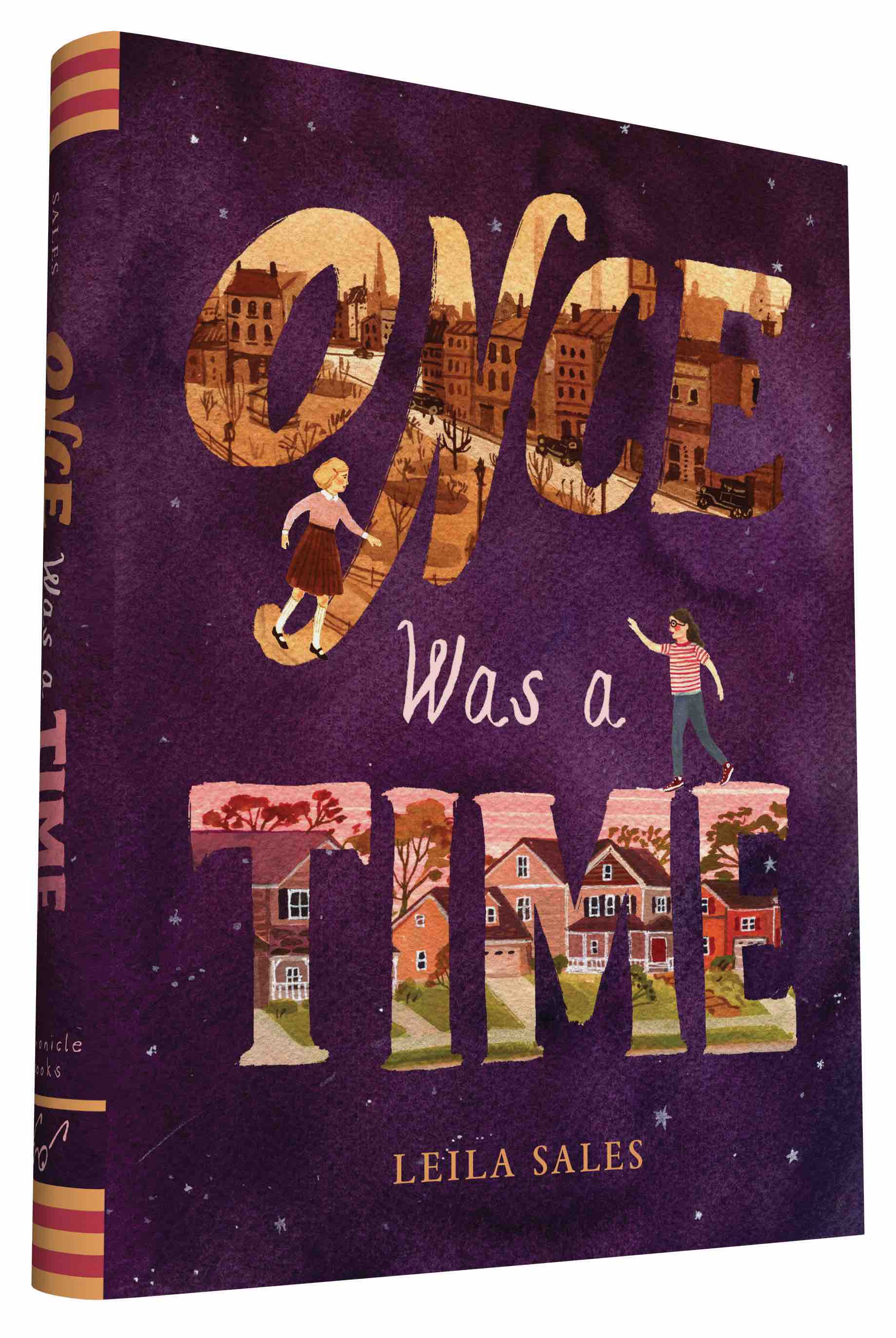
Leila Sales is the author of many critically acclaimed young adult novels, including “Tonight the Streets Are Ours” and “This Song Will Save Your Life.” The following is her interview with Cracking the Cover for her middle-grade novel, “Once Was a Time.”
Why do you write?
I always loved playing imaginary games when I was a kid. You could just give me a notebook and a pen and I’d be perfectly happy for hours, inventing different characters: giving them names, drawing their rooms, mapping out their family trees, etc. It may go without saying here that I’m an only child. So I would just invent as many other children as I thought of, and then have them do exactly what I wanted. I never wanted to stop playing imaginary games, or thinking about what could happen to imaginary people. So I became a writer!
Why specifically do you write for young readers?
Adults have, in a way, too much perspective, too much distance from their emotions. If something goes wrong, adults have the experience to say, “Well, things have gone wrong in the past, and I’ve always worked it out before. Things go wrong for other people all over the world; my suffering is not the worst. My life is multilayered and long; if I lose this job or house or relationship, there will always be others.” And that is an incredibly boring way to approach a story. Kids’ lives just naturally feel higher stakes because they don’t have that distance yet.
Plus, the sorts of topics that interest me just are more kid-friendly than adult-friendly. Like time travel! When I think about writing an adult book I imagine writing about credit cards and mortgages and extramarital affairs and all of that seems like a drag to me.
Where did the idea for “One Was a Time” come from?
The seed of the idea came to me in a dream. I dreamt about a person who received a postcard from someone whom she’d thought was dead. That was all. The rest of it I had to figure out: who these two people were, how they knew each other, why one of them believed the other was dead, how the supposedly dead one could manage to send a postcard, etc. The time travel, the historical British setting at the beginning, the library, the quest at the end—all of that came later, as I tried to figure out how to get this postcard into the right place at the right time.
 In your acknowledgements you mention “Once Was a Time I Thought” was the inspiration for your book’s title. How so? Did it play any other roles?
In your acknowledgements you mention “Once Was a Time I Thought” was the inspiration for your book’s title. How so? Did it play any other roles?
“Once Was a Time I Thought” is a song by the Mamas and the Papas that I’m a big fan of. So I took my title from that. My last novel, Tonight the Streets Are Ours, was also named after a song (the Richard Hawley song with the same name). I love music, and it’s an enormous inspiration for my creative process, so I like being able to recognize that where I can.
This is your first middle-grade novel. How does writing for a younger set differ from YA?
The chapters are shorter! And you don’t have to write in a romance. For me, the true, life-defining love in this story is the friendship between Lottie and Kitty. And I didn’t want to throw in any sort of romantic interest who might in some way distract from the primacy of that friendship.
Do you believe in time travel?
I don’t think it’s likely, but I’m willing to believe that pretty much anything is possible. If you have a good enough imagination, anything could be true.
Relationships are at the heart of “Once Was a Time.” How did you decide which ones to focus on at specific points throughout the novel?
Lottie and Kitty’s friendship is the focal point of the story. That’s what the whole book comes back to. Of course Lottie has so many other meaningful relationships: with her foster parents, the town librarian, Jake, et al. But I really believe there are some people—not that many, but a few—who are just meant to be together, and no matter how much circumstance gets in their way, they will find each other again.
What are you working on now?
My next young adult novel! It’s more like This Song Will Save Your Life, about a teen girl set in contemporary America. I can’t say anything else about it. But it’s scheduled to come out in Fall 2017, so keep an eye out.
Is there a book from your own childhood that still resonates with you today?
So many. Obviously A Little Princess, which is also Lottie’s favorite book in Once Was a Time. The entire Babysitters Club series, which is basically how I learned how to write. And books by Anne Spencer Lindbergh and Zilpha Keatley Snyder—I think you can see the influence of their works on Once Was a Time—this overlap between fantasy and reality, a real world where magic is possible.
